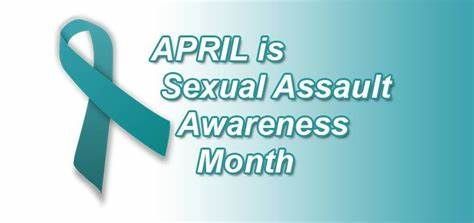Winter Turns into Spring - The Blog




Feeling and Grieving Our Losses
We mostly associate grief when someone close to us dies but, there are so many other instances when we can experience the cycle of grief, such as the loss of a job, a romantic relationship breaking apart, losing a home or the end of a friendship.
When we were sexually abuse as children, we missed out on a lot of things like a loving mother, a safe place to go home to, our innocence, a happy childhood, our sanity, our virginity ... The list is really long. A lot of things have been stolen from us too. There are so many things adults survivors need to feel and grieve. It is a painful process and it feels rather lonely.All Rights Reserved | SylvieRouhani
The model explaining the grieving process most accurately and the most popular is the Kubler-Ross 5 Stages of Grief:
- Denial
- Anger
- Bargaining
- Depression
- Acceptance
Other models add two more stages to the five previous one:
- Shock/disbelief
- Guilt
I personally don't think it matter which model we follow. It is important to know that this process doesn't happen as it is listed. It is a painful, messy and confusing journey! We can feel acceptance one day and feel very angry the next, which can add to the confusion and give us the impression we are far from moving on!
On the subject of moving on , there is so much pressure to do so. No, it doesn't happen overnight (we all wish it would!) It might take a few days, a few months, a decade or two. It might even take a lifetime! Just as anything else in recovery, I believe that there are things that can never go completely away and it is about learning to live well with whatever is going for us. We live in a society that want quick fixes for everything, well, grieving and moving on can't be rushed . Whatever we push down, deep within us, will come back right up, like a Jack in The Box, sooner or later.
When we were sexually abused as children, we missed out on a lot of things like a loving mother, a safe place to go home to, our innocence, a happy childhood, our sanity, our virginity, etc... The list can be really long. A lot of things have been stolen from us too. There are so many things adult survivors need to feel and grieve.
Recently, as part of my recovery work, I wrote a long list of the things I have lost or that have been taken away from me, as a result of the incest, the physical, emotional abuse and the neglect I was the victim of as a child:
- A mother's love and care - being and feeling loved, wanted and safe
- A father's love and presence
- A loving and close family
- Happy and safe childhood
- Happy and safe home to go back to
- Happy, loving and respectful romantic relationships
- Happy and respectful friendships
- Support and encouragement to be myself and in pursuing my dreams and my goals (not having a job I love and supports my life as a result)
- My dreams and my goals.
- Confidence, self-love and a healthy and loving relationship with myself/ Inner Children
- My body - exploring it at my pace and in a healthy
- A healthy, respectful and loving sex life
- A joy for life (Joie de vivre)
For the next few weeks, I will write about each loss as I suspect I am not the only who has such a list. I invite you to think about your own losses and to share your thoughts on the comment section below.
We don't have to grieve alone anymore.
Sylvie
©sylvierouhani2018
What is it Life Coaching? What isn't Life Coaching?
It is a
partnership between a Life Coach and a client.
The coach facilitates a safe space and creates a positive rapport in order for the client to identify the inner blocks to their goals, hindering their happiness. Life Coaching helps the client to identify their own goals, to find their own solutions and achieve personal growth and transformation.
Life Coaching isn’t therapy. Although we acknowledge most inner blocks have their roots in the client’s past, we don’t dwell deep on it (this is best done in a therapeutic setting), but, with the client’s permission, we can explore how the "Then and There" affects the "Here and Now", and how the client can move forward, with Self-Compassion.
If I feel a client could benefit from ongoing therapy, I will advise they do so.
My approach is trauma informed. What is trauma? What does "Trauma Informed" means and how does it fit in with Life Coaching?
Trauma is the impact any significant event that has a lasting adverse effect on an individual’s happiness and well-being. The earlier and the longer lasting the stressful event in an individual’s life, the deeper the debilitating effect on a person’s happiness and well-being are.
“Trauma-informed coaching happens when the coach understands what trauma is, how it presents in the coaching room and how to respond. All this, within established coaching boundaries and contracts.”
Julia Vaughan Smith –
Coaching and Trauma
I have personal and professional experience of trauma and have a real understanding of its impact on mind, body and spirit.
What is Self-Compassion?
Self-compassion is extending compassion to oneself in instances of perceived inadequacy, failure, or general suffering.
Dr Kristin Neff,
PhD, has pioneered and defines self-compassion as being composed of three main components –
mindfulness, common humanity, and self-kindness.
Self-compassion is facing our deepest fears, outdated self-beliefs and our perceived inadequacies with loving kindness towards oneself, by learning to take the time to acknowledge when we are hurting (Mindfulness) , by reminding ourselves how suffering is part of the our human experience and we all experience it (to some degree), we aren’t as alone as we think we are (common Humanity ) and, finally, by taking time to sooth and to love ourselves though our pain as we would with a dear friend of ours (Self-Kindness).
New Paragraph

How does Self-Compassion and Trauma Informed Coaching work?
Oftentimes, our deepest fears, outdated self-beliefs and perceived inadequacies, are the very things blocking us from creating a happy, fulfilled life, and building happy relationships, tailored to our needs and aspirations.
These blocks have roots in our past, whether we are aware of this or not, and will impact our thoughts, feeling and our behaviour as well as on how we perceive ourselves and the world around us. The more severe a past trauma, such as Child Sexual Abuse, the stronger the blocks, which are survival/ defence mechanisms created in childhood in order to survive extreme violence and neglect.
They are also natural responses to abuse and neglect,
when the child really has no one to turn to.
In Coaching, there is an opportunity for the client to explore how the past has an impact on the present and focus on what the client can achieve NOW by becoming their own best friend through anything life throws at them and by having compassion for what they have been through. I will provide the space, the support and some tools (such as reading materials, meditations practice etc...), when necessary, to support clients on their journey.
The coaching process will be led by the client. It will be tailored to the client’s needs, with the client’s approval.
The coaching will be most effective if the client is willing and ready to commit
100% to their journey of self-discovery and healing. During Trauma Informed and Self- Compassion based Life Coaching sessions, the client will learn to approach their biggest blocks and find their inner resources of loving kindness and compassion towards themselves.
Contact Me
If you are interested and ready to transform your life, with self-compassion and tender loving care towards yourself, please, contact me for a FREE 30-minute Skype/ Zoom or phone assessment.
(See Notice Board below for more info)
I am looking forward to hearing from you,
Sylvie
Contact Us
Thank you for contacting me.
I will get back to you as soon as possible.
Kind Regards,
Sylvie
Please try again later
Notice Board
Zoom or Teams
For those who would prefer to have their Life Coaching sessions, remotely, I use Zoom and Microsoft Team.

Venues for face-to-face sessions
TBC
Life Coaching sessions available from January 2023
My Fees
- 30 Minutes Skype/ Zoom or phone
assessment:
FREE
-
Full price
-
£80. (8 to 10 sessions
in total.)
-Concession prices: £60 (8 to 10 sessions in total.)
If you are experiencing financial hardship, such as unemployment or long-term disability, I offer limited places on concession fees. Please, contact me to discuss.
All payments via bank transfer.

